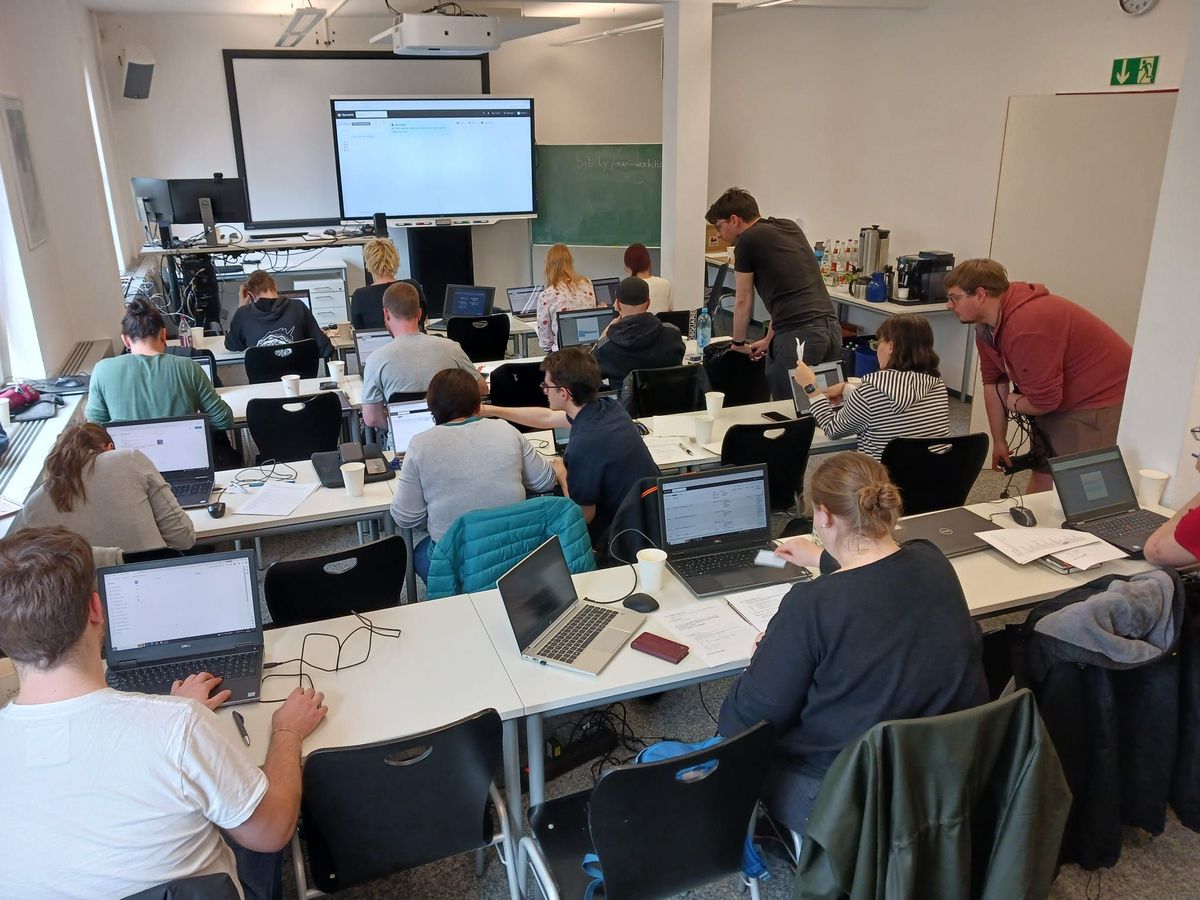The Spacialist virtual research environment is intended to ensure standardised data collection and evaluation within the priority programme as well as options for long-term archiving and future reuse of the generated research data.
What is a virtual research environment?
The Priority Programme (SPP 2361) of the German Research Foundation (DFG) uses the virtual research environment Spacialist of the Digital Humanities Center (DHC) at the University of Tübingen. This is a modular, expandable application platform for spatial research that brings texts, objects and spatiotemporal information together with the help of a flexible data model. Data collection and management using customisable editing masks, a hierarchical organisation and geographical positioning on an interactive map form its core. This is supplemented by collaborative tools and a reference management system. These functionalities can be expanded to include data analysis and file management tools as well as a geographical information system. The ThesauRex tool, also developed by the DHC, is used to create multilingual standard vocabularies (thesauri) in order to standardise data collection. The open-source applications can be accessed via a web browser. Spacialist thus enables SPP members to work together from different locations.
What purposes should it fulfil?
Spacialist is intended to ensure standardised data collection and analysis within the DFG Priority Programme as well as long-term archiving and future reuse of the generated research data in accordance with the FAIR principles. Furthermore, centralised data storage on the professionally managed DHC servers helps to prevent data loss due to decentralised data storage in combination with inadequate backup strategies, even during the project period. Spacialist represents a low-threshold application for researchers who are less familiar with geographical information systems, databases and their query languages.
How to access Spacialist?
SPP members can already access Spacialist. As long as the research work is ongoing, access is restricted to SPP members in order not to jeopardise sensitive research data and results. As soon as the work is completed and it is desired, Spacialist also provides functionalities to interactively present the results to a broader public.
Who is involved in the development?
As a member of the DFG Priority Programme 2361, Martin Offermann is responsible for research data management. Spacialist has been developed by the DHC at the University of Tübingen since 2016. Vinzenz Rosenkranz has been in charge of operational development since 2020. Severin Opel, Dr. Geraldine Quénéhervé and Dr. Michael Derntl are also involved on the DHC side.
If you want to find out more about Spacialist and the latest developments, you can find further information on the DHC website.



